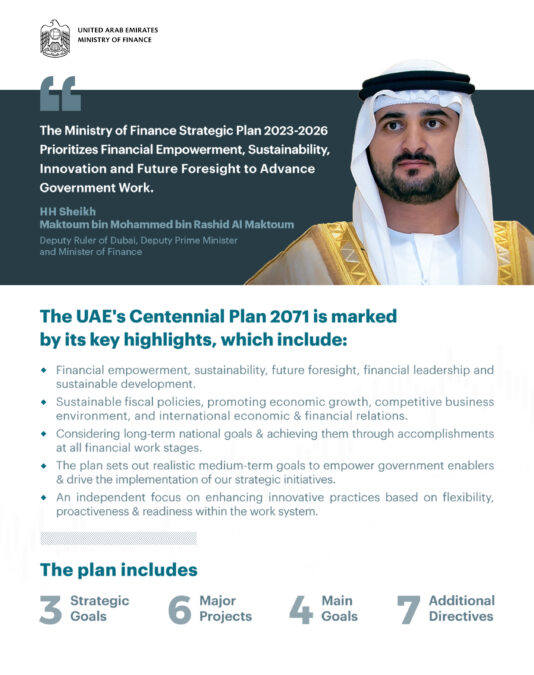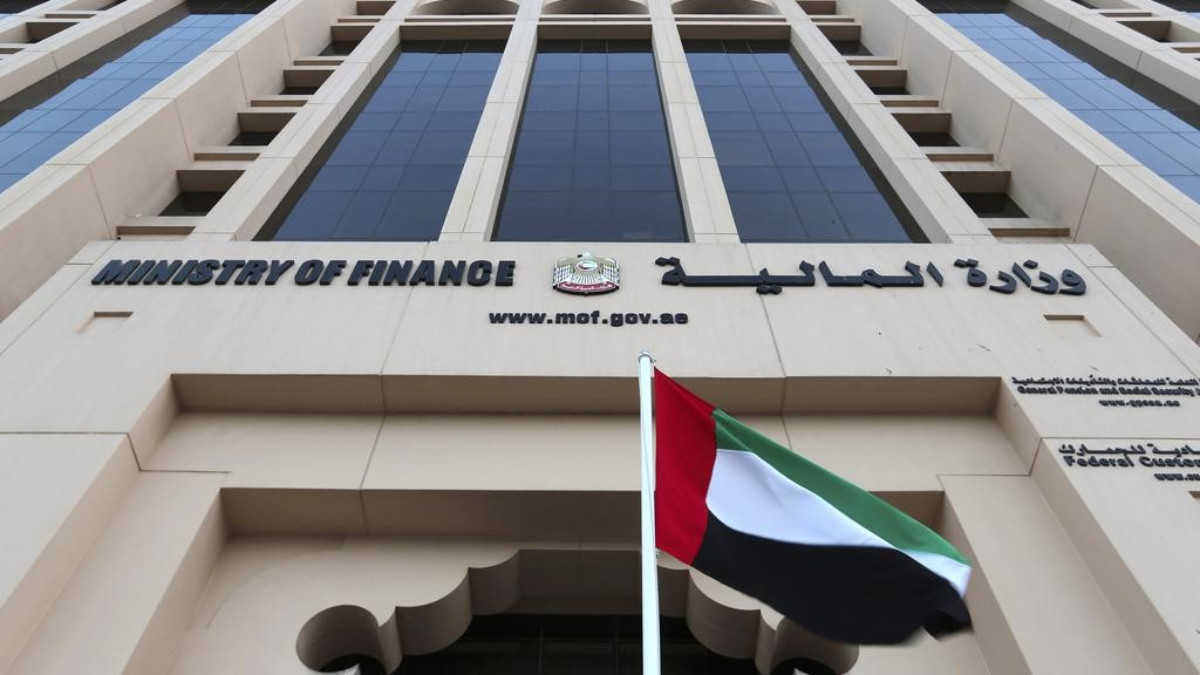Dubai, UAE –– The United Arab Emirates Sunday launched Ministry of Finance’s Strategic Plan 2023-26 aimed at accelerating government performance through financial empowerment, sustainability, innovation and future foresight, financial leadership and sustainable development.
Deputy Ruler of Dubai and Minister of Finance Sheikh Maktoum bin Mohammed bin Rashid Al Maktoum, who launched the strategy, said the UAE will develop and implement sustainable financial policies to promote economic growth, create a competitive business environment, strengthen international economic relations and build trust and transparency.
While the Emirates leadership’s vision and the directions of the UAE strategic plan are the main guidelines for the Ministry’s Strategic Plan 2023-2026, it also has six other guidelines:
- The internal and external factors impacting the ministry’s performance.
- The results of customer satisfaction surveys
- Basic qualifications of the ministry
- The available strategic resources and capabilities
- Internal strengths and weaknesses as well as opportunities and external risks
- International best practices in financial resources management.
The plan includes three strategic goals. It will enable financial performance excellence within the federal government through two initiatives – designing a public finance roadmap and strengthening analytical capabilities and ensuring sound financial management.
It will ensure fiscal sustainability for an inclusive future. This will be driven by two initiatives – managing public debt and designing balanced tax policies that are aligned with local and international developments.
Also, it will strengthen national financial resilience. Two initiatives will enable this goal – designing a framework for emergency response and recovery in finance and developing a program for cooperation with international ministries of finance in the field of public finance.

The Strategic Plan 2023-2026 has four main goals with periodic tasks: Developing a sustainable fiscal policy through three tasks – developing the federal government’s financial planning; strengthening sustainability of public finances and risk management; and preparing and reviewing financial laws and policies Fostering strong economic growth and a competitive business environment by – managing and supervising the government’s financial committees and interests in companies, institutions, and organizations; enhancing the competitiveness of the business environment. Promoting international economic and financial corporation through three tasks – promoting international financial interests; utilizing the opportunities and advantages of joint Gulf financial and economic integration; and developing and strengthening international tax relations. Enhancing trust and transparency through four tasks – improving and developing mechanisms for budget planning and implementation; managing and governing financial data; preparing and managing the federal government’s financial operations; and managing the government procurement platform.
“From human capital and legislative structures to the local business environment, financial policies, international relations and global partnerships, our plan sets out realistic medium-term goals. It will also empower government enablers to drive implementation of our strategic initiatives,” Sheikh Maktoum said.
The Strategic Plan 2023-2026 sets out a plan for government enablers. Under the goal to attract and enable talents and provide effective and efficient institutional services and digital structure, there are three strategic projects – financial leaders and future skills, designing a framework for attracting and retaining talents, and developing the Ministry’s artificial intelligence framework.
To achieve the first government enabler, along with its strategic projects, 10 periodic tasks were identified – managing financial resources and procurement efficiently in line with international best practices; applying best human resources practices and international best practices in leadership; setting quality standards and institutional excellence; ensuring internal and external communication; setting and developing the strategic plan; measuring performance; providing the best legal services ; providing the latest IT services; providing common services for all organizational units with high efficiency.
The second government enabler – promoting innovation practices based on agility, preemption, and readiness at the workplace – includes one strategic project – the consolidation of best practices in innovation and change management. It also includes two periodic tasks – managing institutional innovation, and future foresight.

